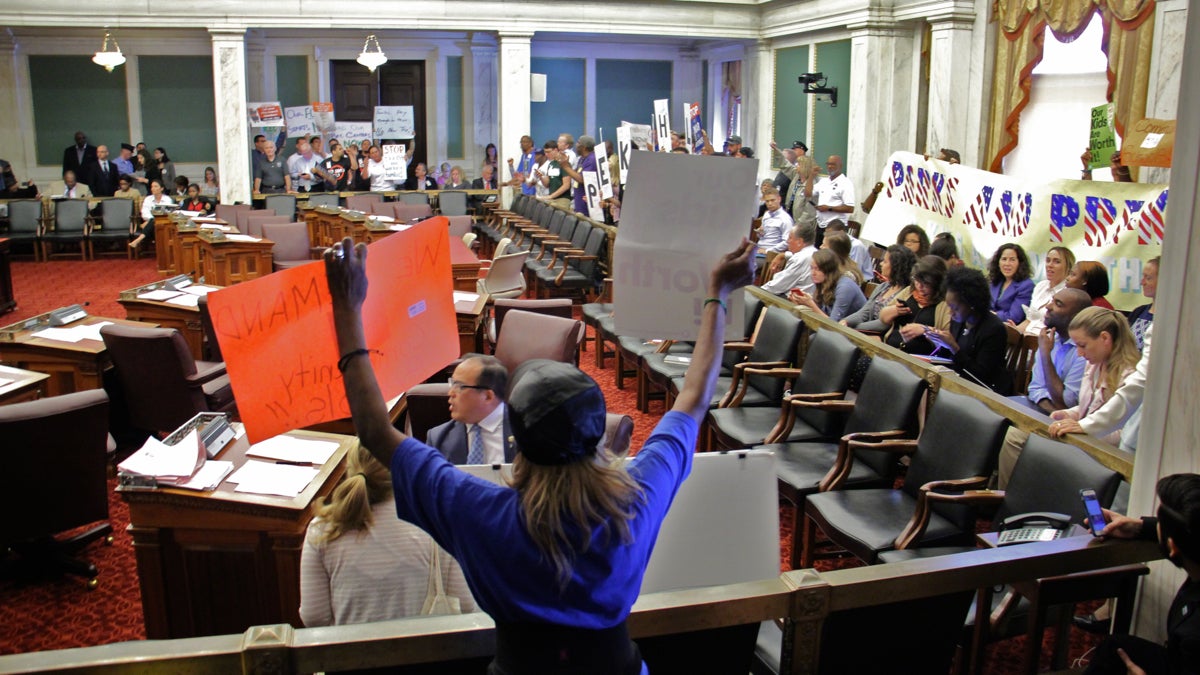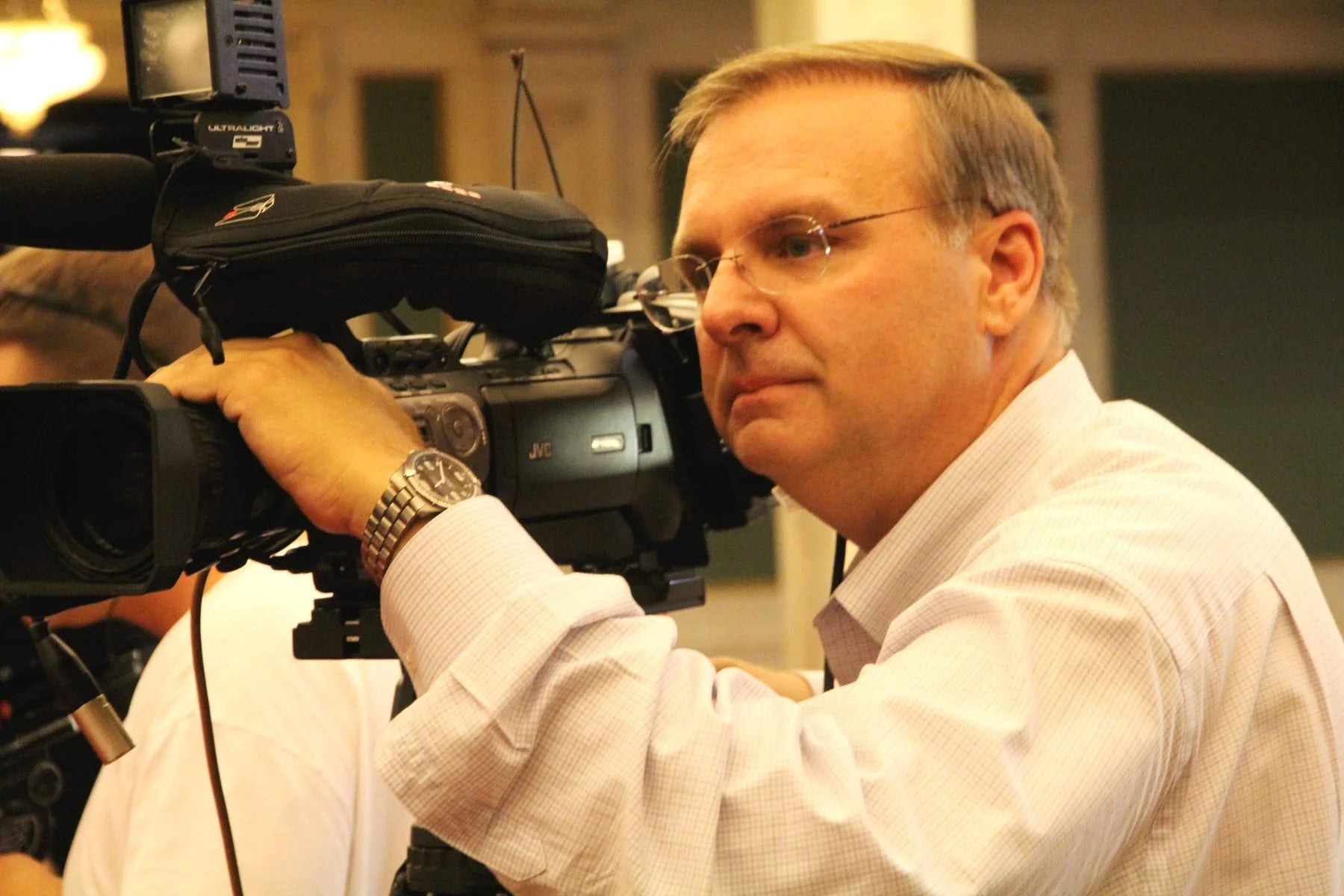In search of … the ninth vote on the soda tax bill
Listen
City Council chambers filled with protesters prior to a vote Wednesday night on the controversial sugary drinks tax. (Emma Lee/WHYY)
In Philadelphia City Council, corralling nine votes is essential to passing a new law. That’s clear as glass.
Trying to determine who cast that crucial ninth vote Wednesday night for Philadelphia’s proposed tax on soda and sugary beverages is a much murkier matter.
“All those in favor of the motion will signify by saying aye,” Council President Darrell Clarke instructed. “The ayes have it!”
City Council rules state only a voice vote is required to move a bill out of committee.
And, last night, Council leaders were not handing out a list of who voted in favor of the controversial 1.5-cents-per-ounce tax.
Previously, Councilwoman Cindy Bass had been on the fence. She said Thursday that she wasn’t the ninth — and deciding — vote, but she did vote in favor.
“I would say in the end there were more than nine votes for this,” Bass said. “There were more like 13, 14 votes.”
Just a few weeks, Councilwoman Jannie Blackwell stood before an anti-soda tax rally and said she was against it the tax.
“We are happy to support labor. We are not supporting this sugar tax, and we are happy to stand with all who are on this side of the issue,” she said May 4. “We’ll see what happens. The struggle still continues, but we are on your side.”
But, on Wednesday night, Blackwell supported the tax — though she wouldn’t admit to being the key ninth vote either.
“What changed my mind is that we were there. When a majority of people were there, and it was apparent that we were going to go there, then you help make the compromise,” she said. “You always have to be open to compromise … you gotta settle it and move on.”
Blackwell said she didn’t cut a deal in exchange for her vote. However, for years, she has sought renovations for the recreation centers in her district — and the proposed tax will generate revenue for repairing libraries and recreation facilities.
“Quite frankly, the money for my recs was in the budget a couple of years ago,” she said Thursday. Former Mayor Michael Nutter “just didn’t spend it.”
Asked if he would admit to being the key vote to get the beverage tax moving, Councilman Allan Domb was noncommittal.
“I guess I was around there … yeah,” he said, adding that it wasn’t an easy decision.
“First of all, I didn’t want to be the ninth vote, I wanted to be 12 votes and not nine,” he said. “I wanted to help with my colleagues to do it together, I wanted everyone to do it as a team.”
His vote did come with a price.
“The administration has committed — along with City Council and the president — to do two major efficiencies in government,” Domb said. “Collect delinquent taxes with a specific program and correctly assess commercial properties, and land values across the board.”
Getting enough votes in committee makes it all but certain the beverage tax will win final passage next week.
But the tax issue isn’t over. There is a strong possibility that the matter could be going to court as representatives of the soda industry contend it unfairly targets one business and isn’t equally spread throughout the city.
Bass said she wanted to hike real estate taxes instead.
“That’s something I’m going to continue to be able to talk about,” she said. “It’s a stable way of funding, and I think we didn’t get support this round. It’s something that is going to continue to be on the table.”
The final vote on the tax and the city budget is set for June 16.
WHYY is your source for fact-based, in-depth journalism and information. As a nonprofit organization, we rely on financial support from readers like you. Please give today.





